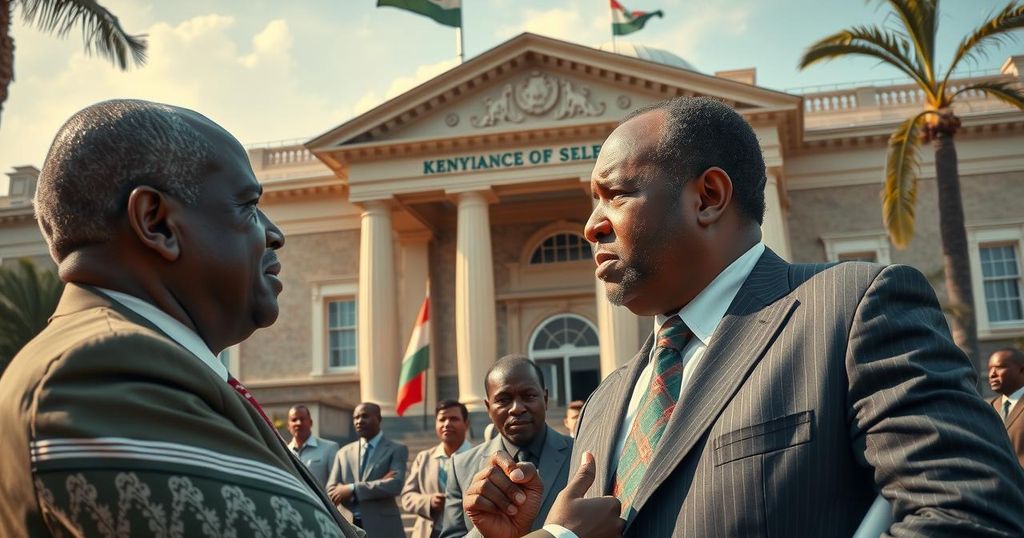President William Ruto addressed abduction concerns at a funeral, assuring measures against such practices. He warned of the dangers of inciting violence and highlighted the political ramifications. Debates escalated as allies accused opponents of self-abductions, while others called for attention to regional issues. Ruto emphasized achievements and plans to enhance agrarian productivity, amidst calls for accountability in governance.
During the funeral of Moses Wetang’ula’s mother, President William Ruto addressed the pressing issue of abductions and forced disappearances targeting government critics. He assured mourners that he has taken significant measures to combat such occurrences, which have led to the uncovering of bodies in various natural settings. President Ruto emphasized the reallocation of financial resources to the Inspector General of Police to guarantee unbiased investigations and uphold legal standards.
In response to the escalating discourse on this matter, the President advised social media users to refrain from inciting violence or undermining his administration, warning that such actions could adversely affect Kenya’s standing on the international stage. He urged all citizens to respect the rule of law and work towards promoting a favorable image of the nation.
The situation has sparked a heated debate among political leaders, with some of President Ruto’s allies suggesting that certain political opponents are staging self-abductions to tarnish the government’s reputation and solicit foreign aid. Notably, Cotu Secretary General Francis Atwoli and National Assembly Majority Leader Kimani Ichung’wah claimed that these acts are intended to destabilize the current government.
Conversely, Trans Nzoia Governor George Natembeya refuted these claims and called for greater tolerance, pressing the government to enhance its response to cases of missing individuals. He further criticized local leadership for failing to address economic issues in Western Kenya, blaming allies of President Ruto for neglecting regional development. In turn, Ichung’wah advised Governor Natembeya to utilize appropriate forums to voice his concerns and dismissed his allegations regarding abductions.
Prime Cabinet Secretary Musalia Mudavadi and other officials in attendance reinforced the necessity of strict enforcement of cybercrime legislation to curtail incitement on social media. They reiterated the importance of maintaining legal integrity and holding accountable those who breach it. In his address, President Ruto also highlighted achievements of his administration, including lower fertilizer prices, improvements to the Competence-Based Curriculum, increased educator recruitment, and sugar industry revitalization initiatives. He proposed reward systems for sugarcane producers and encouraged litigants to withdraw outstanding court cases to enhance operations at Mumias Sugar Company.
The political climate in Kenya has been rife with tensions over allegations of abductions and forced disappearances, particularly concerning individuals critical of the government. These concerns have recently gained traction following public remarks by President William Ruto, who has promised to tackle these issues head-on. As Kenya grapples with issues around governance, safety, and the rule of law, the interplay between political rhetoric and accountability remains significant. The discussions surrounding these abductions also reflect deeper socio-economic concerns impacting various regions, particularly Western Kenya, which has prompted discussions among political leaders regarding development and accountability.
In summary, the discourse surrounding abductions in Kenya has intensified, with President William Ruto and his allies engaging in a robust debate regarding the implications of these occurrences on national governance and reputation. While the President asserts his commitment to combating such practices and enhancing legal compliance, dissenting leaders like Governor Natembeya push for more comprehensive responses to regional issues. This complex interplay of politics, social media, and regional development reflects the multifaceted challenges facing Kenya today.
Original Source: www.mwakilishi.com






